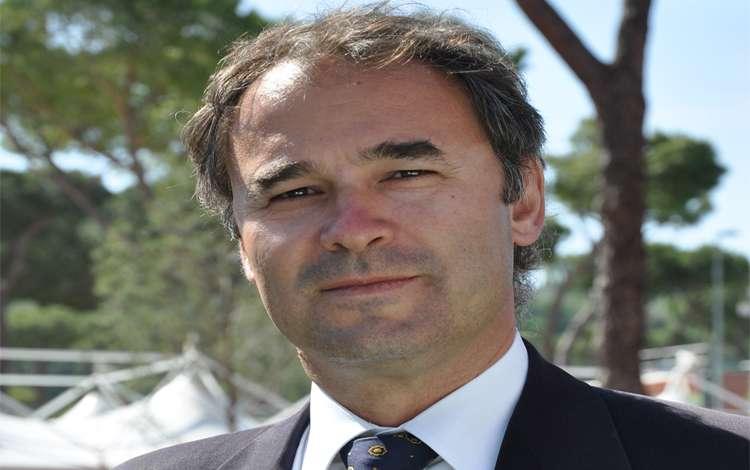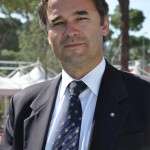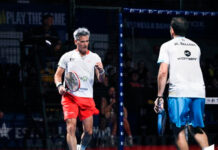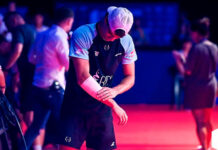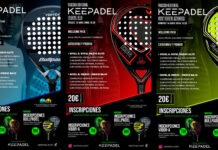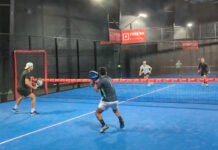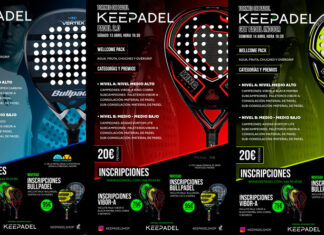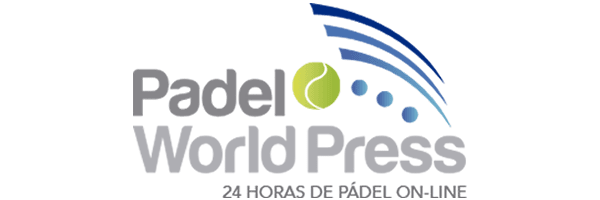December was the month of 2012 when something began to change in the international padel. It was a December 21 when the representatives of the FIP decided to take a turn and, with it, start a new project, with a new Board and with the firm intention of taking major and important steps forward.
Padel World Press .- With a year of hard work behind him, but with the illusion of the first day, Daniel Patti has wanted to analyze in Padel World Press his first 14 months as President of the International Federation. In a long interview, which we have divided into two installments, we will review all the current affairs of the paddle ... You can not miss it!
A little over a year after the beginning of your mandate at the head of the IFJ, what balance would you make of all this time?
The scale has a very positive dish full of things and with situations of 'weight', so the impression is that on that side are the situations that have dominated our activity as leaders and that, of course, today allow us to meet Sufficiently satisfied. I can say that it is a success shared with the entire Board of Directors, which is very united and with an identified vision. We have had more than 40 Board meetings at 2013, almost one every week. This demonstrates the strong conviction that only by participating, sharing and keeping everyone informed, from Canada to Argentina through Mexico, Brazil and Uruguay can we produce good management and nurture proposals for the development of international paddle.
The Junior World Championship was held in Buenos Aires (Argentina) and the World Open in Bilbao, with the great collaboration of the structures of the Federations of the host countries but, also, with a large participation of the other National Federations in a joint effort It was an odd year and we have continued as planned.
On the other hand, tournaments have been played that have composed and nurtured the International Ranking in Argentina, the United States, Germany and Italy, which is also a good sign of opening the possibilities that players have when choosing venues where to compete. Nor can it be forgotten that three new Class B Associate Members have been included, such as Holland, Germany and the Dominican Republic; Two Class C have been included, such as Russia and India, and the situation in France has been faced with the painful exclusion of a National Federation that had organized an Absolute World Championship in 2000 but with the hope that the new entity that has covered his place could develop quickly and reach Class B in a short time ... At the moment, he has been a member of Class C.
We have held three General Assemblies, the Ordinary and two Extraordinary, during which the affiliated National Federations have taken two important steps: in one was approved and gave officiality to the Mexican World Championship 2012, allowing to maintain a coherence and continuity that lasted from the first World Cup, with the finals played at the Expo in Seville. In the other, the new Statutes were approved that will allow us to work better internally and look abroad (understanding this as looking towards the international institutional activity) since they are the basis for the entry into SportAccord.
Some development projects have been presented for the international padel, one for the technical sector and training, and another to promote the development of the industry of the instruments that use the paddle, which can also be presented in new markets. Beyond the goodness of both projects, which will be modified and refined in the future, they place the FIP in an absolutely central role. It will not only be a mere spectator of what happens around it (produced by its Associate Members, Companies and the environment in general) but it will become the protagonist and promoter of new initiatives. I am proud to say that we have opened our doors to all, institutions, athletes, organizers, producers, media, to listen and offer our vision of the sport, of the organization, of the institutions, of the respect of the rules and of the roles.
On the negative side, we found a couple of things, although it would have been better not to find even one ... However, without elements with a 'minus' sign it is not easy to be able to give enough evidence to those that have a '+++' sign such as the ones I just mentioned.
It would be the fact that in an odd year the European Championship was not held, which had been developed from Italy 1995 to Portugal 2009 without interruptions (1997 Barcelona, 1999 Waterloo, 2001 Sabadel, 2003 Aix-en-Provence, 2005 Bologna, 2007 Seville ). They have already skipped two editions and that highlights that you have to work from now so you do not miss any more edition.
On the other hand, there is the institutional relationship between the International Federation and the Spanish Paddle Federation, which is limited to the formal needs of both. There is no space for a different human relationship between its leaders and the contribution of the technicians and the personnel of the FEP, in the past protagonist of many important contributions to the FIP, nowadays it is null.
Do you think that you have fulfilled the objectives set for these first twelve months?
Yes and no. Yes because we have generated a lot of international institutional activity, integrating members of the different Federations in the Committees and Commissions, creating space for new leaders, feeding the possibility of 'thinking' to a new FIP, projected to the true international development and taking care of listening to all equally, from the leading sports federations and structurally to those that need models and support for a normal development.
I think we have put order in the decision processes. All meetings and resolutions were recorded in writing, signed by the members of the Board of Directors. We have made a scrupulous control of economic and financial management, and we have left the box at the close of the 2013 with something more money than we received the December 31 2012. We have worked in harmony and have made shared decisions after having evaluated them deeply. We have 'infected' our enthusiasm to other people to help us and see the FIP as an organization of all, formed by all and at the service of all.
Regarding the 'No', it would be because we would have liked to do much more, starting with having had the instruments to convince or help the National Federations to organize at least one International Tournament that feeds the International Circuit and the Ranking. If each of the Affiliate Members organized at least one tournament we would have a Circuit with more than 20 tests, not counting the World and Continental tournaments. This would allow us to develop much more institutional activity, since we would take advantage of these opportunities to hold training seminars, conferences, meetings, round tables and, in this way, continue to receive ideas to feed the proposals that the IFJ makes to its Members and contribute to the environment. of paddle in general.
I imagine that not everything was easy ... What are the main difficulties that you have encountered?
It has not been simple but neither too complicated. Nowadays, the development of communications allows us to converse and exchange documents live, as if we were one facing the other. Six members of the Board of Directors from six different countries could be a problem years ago. In these moments it is not, beyond that someone has to adapt to the majority schedules. We also had the opportunity to gather the entire Board of Directors on one occasion, thanks to the support of a sponsor, and at the Meetings and Assemblies of Buenos Aires we were four of the six members.
The other small difficulty was finding a common language to communicate towards the 'outside' of the Board of Directors. This obstacle was resolved by always sharing the documents before being sent. We could suffer a slight delay in the answers but, after all, we had a response that was completely shared by all of the six members of the Board.
We also encounter difficulties linked to the lack of availability of certain documents but, as has been seen, there has been no problem in the actions of the Board of Directors.
What challenge has made you feel especially proud?
The continuity in the celebration of the World Junior Championship in Argentina and the World Open in Spain. Also the continuity of the Annual General Meeting and the celebration of the two necessary Extraordinary Assemblies. In them, we had a positive response from Associate Members to what was presented by the Board of Directors, both in terms of what was done and in relation to the projects.
There is a lot of talk about the need to internationalize padel. From your point of view, how should that process be so that false steps are not taken?
We must learn from the examples that the world of sport makes available to us, even within our discipline, the padel. You can not 'internationalize' without the joint contribution of institutions and private initiatives or companies. A company that decides to invest in a certain country sees it as an interesting potential market, and it can not be that it is this same company that asks the FIP what it has to do to 'affiliate' a new country. Private initiatives are welcome and interesting, they look for an objective according to their conception of a company, but they can not generate by themselves an Institution that has the due recognition of the government organisms of a certain country. To reach them, it is not just about having a couple of armed clubs and a list of leaders willing to offer their face or their signature. There is a need for sports structures, technical bodies, agreements with other organizations and institutions, registration of certain local government agencies, competitions, classifications, categorizations, minimum training programs, recognitions, etc., which are not available from one day to the next . With the current Statutes we give a more precise indication of what will be the conditions to access the different categories of Associate Member and Recognized Organization, it is simpler for some cases and also formally more demanding for other cases of type of membership.
The ideal is to create the conditions so that each business or private initiative is adequately prepared with time and accompanied by the FIP, which will use all the international sports institutional channels available to generate meetings during the events or initiatives organized by the companies and, also, to try to conclude with the common effort in sowing a seed that could represent in the future a new National Federation of Paddle.
Fairs and Sports Workshops are also important moments of visibility. If these ventures were accompanied by the FIP, I believe that the results for both could be more concrete and reliable since there would be a kind of guarantee and obligation for the entities involved.
Since the IFJ, have you noticed an increase in the interest of more countries to develop and practice padel?
As I told you, 2013 has joined three Class B Associate Members and three Class C Members. Removing these, which are already a good number if we see it in proportion to what is today 'our family' and how old is the FIP, which was born in July of 1991 and already has 23 years, the situation is one of continuous evolution. But I think we have to make a distinction between what is meant by 'country interested in developing padel' and private initiatives, of people in the world today who travel, travel, have summer or winter residences in other countries where situations are different from the country in which they live.
Therefore, institutionally, I have to respond that we have not received any request from Olympic Committees or from National Federations of other racquet sports or from existing and regularly registered Sports Associations. On the part of private, players, technicians or entrepreneurs, we receive many and our answers are always the same: maximum openness and availability to indicate the steps to follow, but also absolute indication that it is in the chosen country where the answers should be found. that is necessary to form a National Sports Federation that has the requisites that allow it a certain recognition. At present, there are at least ten countries that are determined to meet the necessary formal requirements.
Do not miss the second part of this interesting interview! Next Monday, 10 March day, Daniel Patti will speak more in depth about the relationship between the FIP and the Spanish Federation, he will give us his opinion on the newly constituted European Federation and will offer us his point of view on the situation surrounding the Professional padel
* You can follow all the news of the world of paddle in our profiles of Facebook y Twitter as well as subscribe to our Newsletter .

